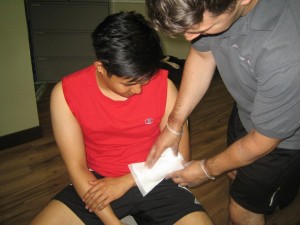Personal Cleanliness
- When coughing or sneezing, place your hand in front your nose and mouth with a tissue. Dispose the tissue immediately after you are done. Rinse your hands with water and soap.
- Rinse your hands frequently with soap and water. If water or soap is not accessible, you can also use a hand rub or gel. Try not to share towels when drying your hands.
- Try not to touch your eyes, mouth, and nose.
- Stay away from people who are sick.
- If you are ill with the flu, it is recommended that you remain at home for at least one day after your fever is gone, except for going to see your GP. A person’s fever is gone when the temperature returns to normal.
- While you are ill, restrict your contact with people as much as possible.
Vaccination (flu injection)

- Vaccination is particularly important for individuals at high risk of severe complications from the flu: young kids, pregnant females, folks with chronic health disorders (like asthma, heart disease, diabetes) and individuals older than 65 years of age.
- Seasonal flu injections are also vital for health care employees, and other individuals care for high-risk individuals.
When to Get Inoculated
Annual flu inoculation should start in September or as soon as vaccine is obtainable and carry on throughout the flu season, into December. The timing and period of flu seasons differ. While influenza occurrences can occur as early as October, most of the time, flu activity starts in January or later.
Who Should Not Be Inoculated
There are some individuals who should not have a flu injection without first referring to a GP. These include:
- Individuals who have a serious reaction to chicken eggs.
- Individuals who have had a serious reaction to a flu vaccination.
- Kids below the age of six months (flu injection is not permitted for this age group), and
- Individuals who have a mild-to-severe disorder with a high fever (they should hold on until they get better to get immunized.)
Wash Your Hands Frequently
Flu viruses can be distributed through tiny drops of saliva that are coughed or sneezed out into the air by a contagious individual, and inhaled in by another individual.
If a sick person sneezes in their hand, and then touches an item (such as a handle) the germ can pass from the item to the next individual who touches it.
By cleaning your hands regularly, you will eliminate any germs you have picked up.
Related Video On Flu Prevention
https://www.youtube.com/watch?v=irCs6k5EZ_k
